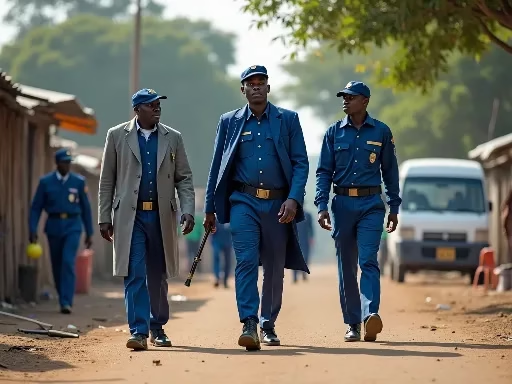In recent days, Zimbabwe’s streets have remained largely quiet despite calls from factions within the ruling ZANU-PF for anti-government protests. While veteran figures—once staunch supporters of President Emmerson Mnangagwa—are now urging a regime change, most Zimbabweans appear to be prioritizing peace and economic recovery over political confrontation. This measured public response is emerging as a defining trend in the nation’s current political landscape.
A Silent Rebellion
Earlier this week, calls for a mass uprising against plans to extend Mnangagwa’s rule were met with minimal public turnout. Reports from Harare and Bulawayo indicate that citizens, business owners, and community leaders have chosen to continue with their daily routines rather than heed the provocative demonstrations organized by dissident war veterans (REUTERS.COM; OURMIDLAND.COM). This restraint suggests that many Zimbabweans are wary of risking economic stability and further social disruption amid a challenging global and domestic climate.
Government Moves and Political Calculus
In recent months, Mnangagwa’s administration has been on a war footing, reshuffling key positions to secure its hold on power. The dismissal of a senior army chief, along with other high-profile cabinet changes, has raised questions about the government’s intentions and its response to internal dissent (REUTERS.COM). Despite mounting pressure from factions such as the emerging M31 Movement, which calls for democratic reforms and an end to what it deems authoritarian practices, the president has maintained that his focus remains on restoring order and stimulating economic growth.
Economic Imperatives in a Time of Uncertainty
The quiet streets are not merely a sign of political acquiescence but also reflect the pressing need for economic recovery. After years of fluctuating investor confidence and challenging fiscal policies, the populace appears determined to prioritize stability over the uncertainties that protests could exacerbate. Many local business leaders and everyday citizens believe that maintaining a peaceful environment is key to attracting both local and foreign investment—a necessary ingredient for turning around Zimbabwe’s economic fortunes.
A Nation at a Crossroads
While the rhetoric from some veteran leaders and opposition voices calls for a radical shift in leadership, the general consensus among Zimbabweans seems to lean toward gradual reform rather than abrupt upheaval. Observers note that this pragmatic approach—avoiding street protests and focusing on day-to-day business—may well be a calculated move to ensure that political transitions do not derail ongoing economic recovery efforts (CHRONICLE.CO.ZW; CHRONICLE.CO.ZW).
Looking Ahead
As Zimbabwe grapples with internal political debates and broader economic challenges, the choices made by its citizens in the coming months could set the stage for the country’s future. Will the call for swift political change prevail, or will the emphasis on stability and growth continue to guide the nation? For now, the quiet resilience of the people suggests that, in the eyes of many Zimbabweans, maintaining peace is a crucial step toward a more prosperous and stable future.
Infowave will continue to monitor these developments and provide curated insights into the unfolding story of Zimbabwe’s political and economic journey.


Awesome
Good
mature people, i love this
this is humility
zimboz are so gooood
the best response
nice
like minded people
Thanks 👍